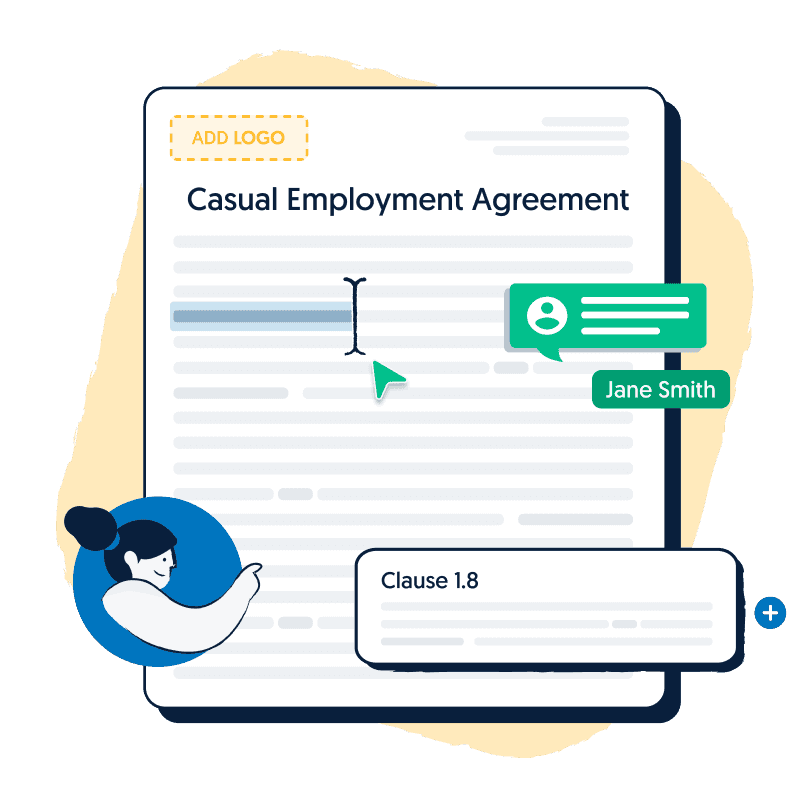Sydney-based law graduate at the Australian Taxation Office. Formerly Legal Intern at Lawpath.
What is casual work?
Casual employment is any work an employee does without guarantee of regular hours or long-term employment. In addition to irregular hours, casual employment will not offer paid sick leave, annual leave or other full-time employee entitlements. Further, you can terminate a casual employee at any time without notice. This can be a difficult predicament for employees who have been employed casually for a long period of time. However, casual conversion provides a legal way that casual employees can seek to make their employment permanent.

Get your Casual Employment Agreement now for free.
Hire casual employees in any industry. This Employment Agreement (Casual) is essential when hiring new employees for your business.
Casual conversion
Casual employees make up 25% of the Australian workforce. Although this rate has remained stable over the last 20 years, arguments about a lack of job security in the current economic climate have gained traction. Casual conversion may be a solution to underemployment. In addition, it increases job security and employee entitlements. Casual conversion is the process where a casual employee becomes a permanent employee of a business, whether that be full-time or part-time. Up until recently, casual conversion was difficult to achieve because the option would need to be available under the employee’s award or enterprise agreement. An employer could also easily reject these requests.
New casual conversion rules in place since 2018
A 2018 decision by the Fair Work Commission required that all modern awards must include a model clause that entitles casual employees to request casual conversion. If your employees come under a modern award, they can request casual conversion. This however, does not mean that a request will need to be automatically accepted. There is a process in place that still needs to be followed. Recently, the Federal Government attempted to pass laws that would require casual conversion to apply to employees covered by enterprise agreements and the Fair Work Act 2009 (Cth). However, this has not yet come into effect. Therefore, if your workers are employed under these arrangements, then they are not necessarily entitled to casual conversion. This is unless the enterprise agreement explicitly states so.
When can you refuse a casual conversion request?
Whether or not you think that casual conversion is beneficial to your business, you must still carefully consider any request for conversion that you receive. If your employees are covered by a modern award, then you can refuse this request. Refusal can only take place on reasonable grounds. Reasonable grounds for refusal can include that:
- The employee is not a regular casual. This is where conversion would significantly increase the employee’s hours.
- You are aware or suspect that the employee’s position won’t exist in the next 12 months.
- If you know or foresee that your employee’s hours will become significantly reduced in the next 12 months.
- You know or foresee that there will be a change to your employee’s required hours or days of work in the next 12 months which would not be commensurate with your employee’s position as a permanent employee.
Additional things to note
As an employer, you must provide notice of your refusal in writing to your employee within 21 days. An employee has the right to reject the refusal and dispute it. Your employee may lodge a complaint with the Fair Work Commission (FWC). If conversion is granted, then both the employer and employee must discuss the new terms of employment and record it in writing.
Don't know where to start?
Contact us on 1800 529 728 to learn more about customising legal documents, obtaining a fixed-fee quote from our network of 600+ expert lawyers or to get answers to your legal questions.






